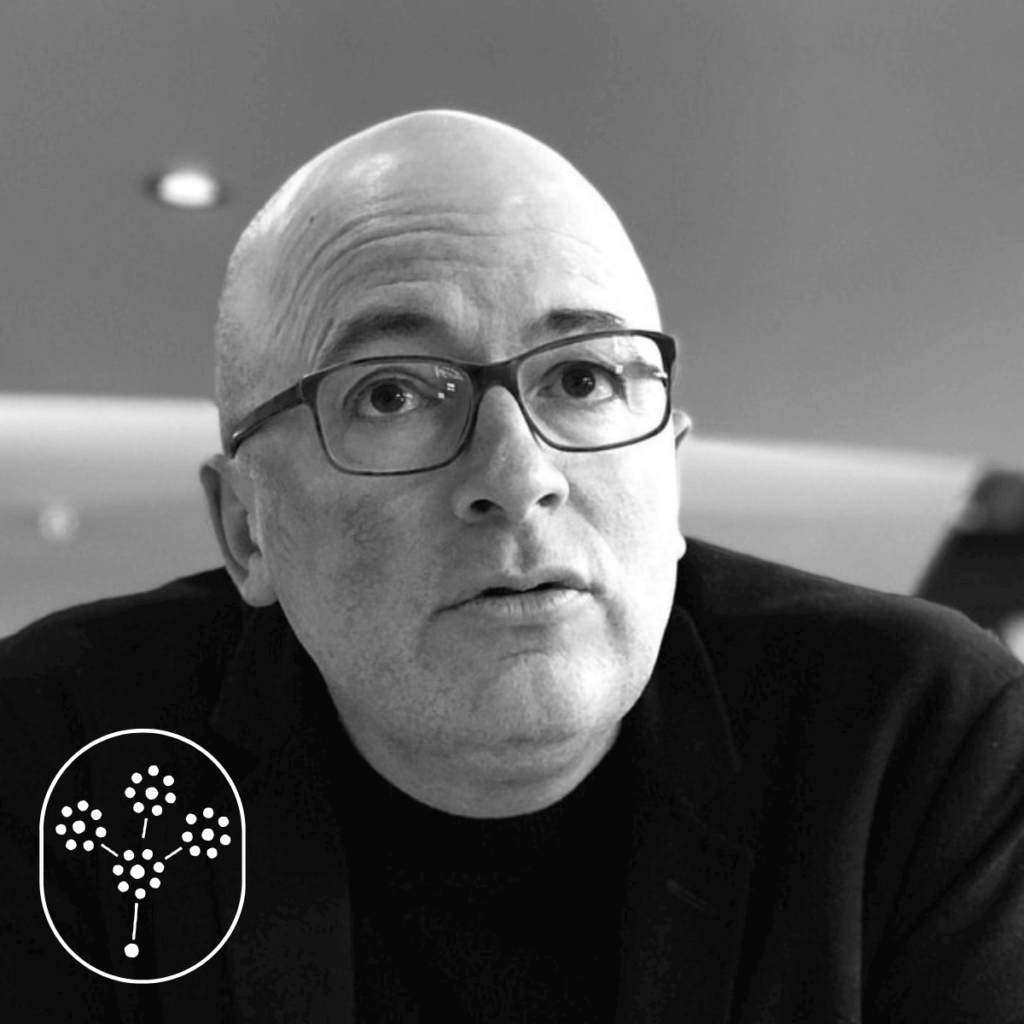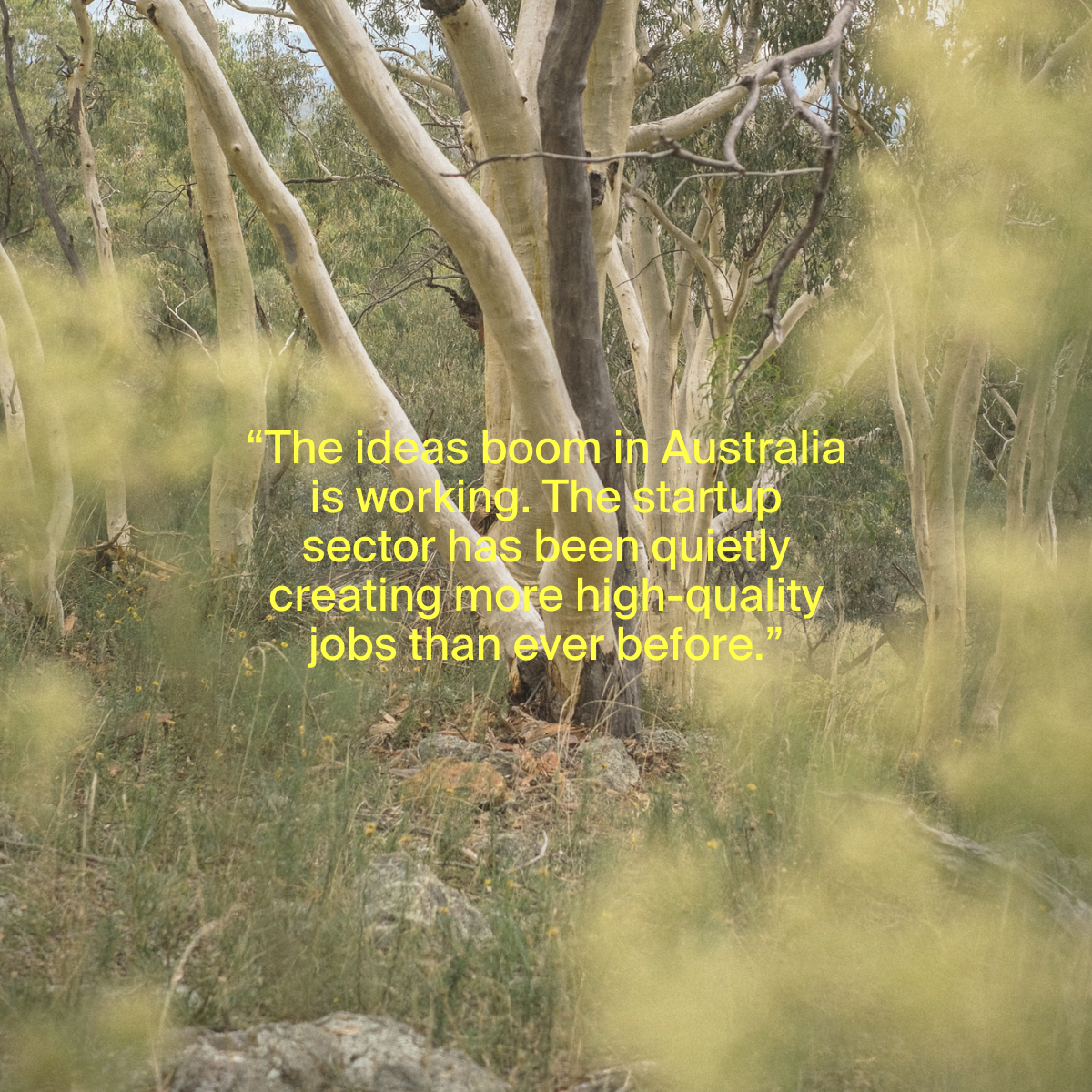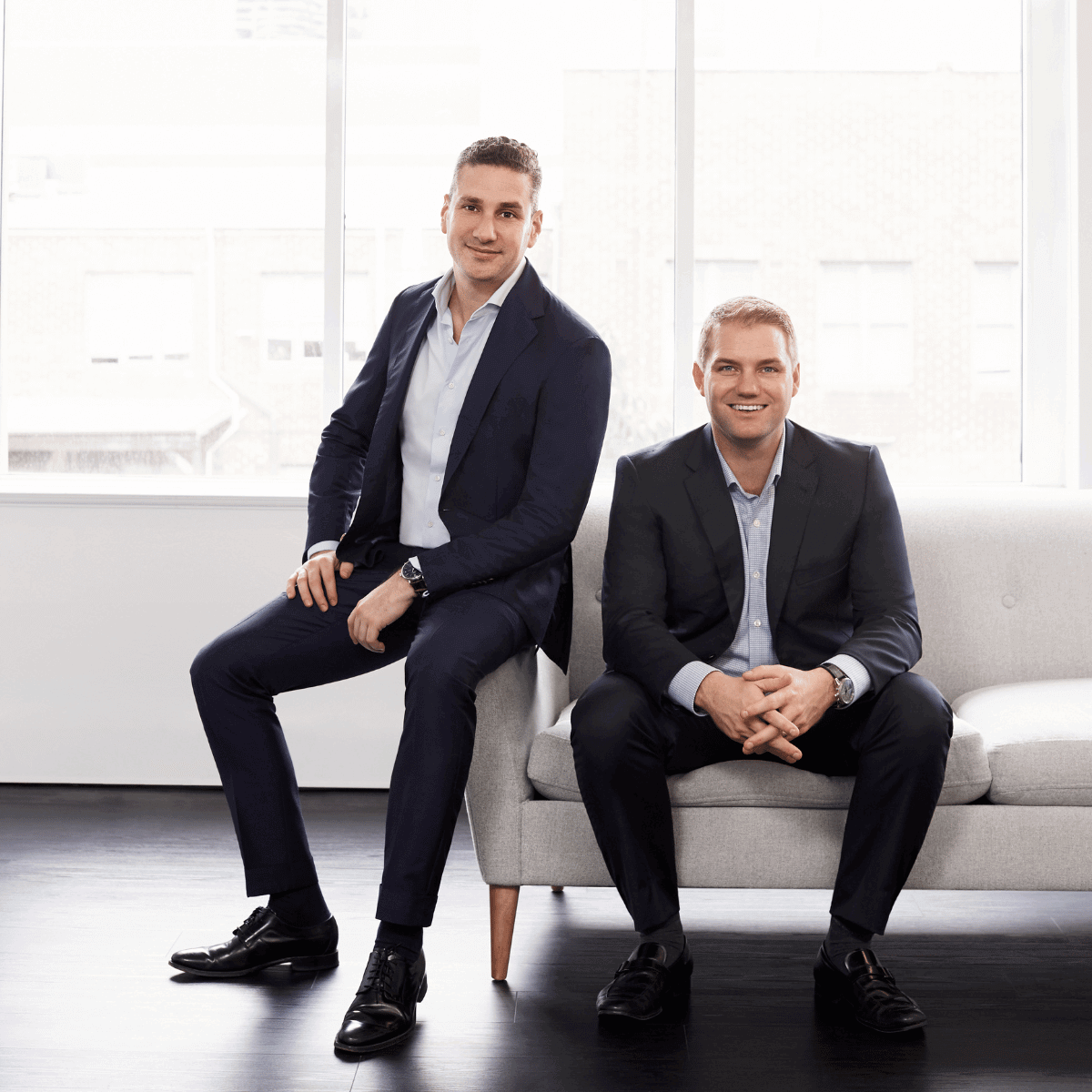As we enter a new economic cycle, founders are rightly nervous about the ongoing availability of early-stage capital.
Much fanfare is made of VCs and the investments we make. Far less talked about, and perhaps more critical to the ongoing health of the startup ecosystem, are local angel investors. They almost always fly below the radar and rarely receive well-deserved plaudits for their early bets and foresight.
With that in mind, I’ve set out to highlight the best angel investors in Australia and New Zealand. Today, I chat with one of my absolute favourites: Andy Hamilton.
Andy has been investing in startups since the late 90s and ran The Icehouse in Auckland for 19 years from 2001. It is no understatement to say that the Kiwi startup ecosystem would look very different but for his involvement. You will struggle to find a Kiwi founder Andy hasn’t helped in some way. He’s a giver, a carer, a champion for the underdog and just generally a great guy.
Andy has helped found peak bodies for the Kiwi startup industry like the Angel Association of NZ. Recently he received that group’s Arc Angel award (its highest honour) and last year was awarded an ONZM by the NZ Government for services to small business. He is currently one of four advisors to the Minister for Small Business, Stuart Nash.
Tell me about yourself. You’ve been in the Kiwi startup and SMB scene longer than anyone I know. So it’s not exactly surprising you’re an angel investor!
Lawyer, marketer, personal assistant and even security guard at the America’s Cup with some corporate venture capital thrown in. After all that, I was the first employee of The Icehouse in 2001. I was CEO from June, 2001 until I finished up in Feb, 2020. I remain an executive director for Icehouse Ventures, the investment arm of Icehouse.
I fell into angel investing, not because I wanted to make money, because I wanted to believe in the dreams and hopes of great founders. Even though I was relatively short of cash, after a few years, I realised the thing the founders valued the most was the cash, alongside advice, guidance and belief. If you are in the business of backing founders and small businesses, you kind of need to put your money where your mouth is and go on the journey with them.
As you know, I’m a huge fan of The Icehouse and often base myself there when in Auckland. Tell everyone about it. Where to from here for Icehouse?
Icehouse does two things. It runs learning, development and coaching programmes for established small businesses in NZ and Australia (through a partner) and it is also a funds management business (Icehouse Ventures) in NZ focused on investing in startups from seed through to later rounds of investment.
We have now just over NZD70m under management, have two angel networks that we partner with (Ice Angels and ArcAngels) and a bunch of funds that give investors and founders different options to partner with us from youth focused, to female focused to China market focused and to just general seed, angel and venture.
We also operate two epic demo days per year, which in pre-covid times would attract around 1,500 investors across both events, but more importantly they see founders who pitch raising a lot of investment from the occasions, close to NZD10m. We currently invest into around 50 startups per annum and NZD25m of investment. Our plans include growing our FUM significantly, which really will be off the back of the great work that our Kiwi founders are doing.
Do you invest personally or only via Icehouse Ventures?
I invest both personally and via Icehouse Ventures as long as I can manage the conflicts and interests, which essentially means I need to make sure Icehouse sees anything I see and at least gets to invest alongside me or not!
Tell me about your angel portfolio! And anything you wish to share on its performance.
This is such a funny question for me. As many of you who know me, I am an emotional and caring person and I have said, I want to believe in the whole platform that I have been a part of, but I also don’t have unlimited funds! I don’t have a spreadsheet, I don’t calculate my IRR, nor my holding values and mostly I don’t really know how many companies I have invested in and I do a little dance when some money pops into one of my accounts and generally I try and hide it from my family to work out how it will be used or which is the next company we will invest in.
However, to not be difficult, I am an investor in a few of our funds to get more portfolio spread, plus Icehouse Ventures, Adherium, Auxilio Pharmaceuticals, BlueFrog Breakfast, Designer Wardrobe, Indigo, Jude, OLT, Parrot Analytics, Quotient, TranscribeMe, UneeQ & UniMarket. I just added up the companies and the $s and I just sort of passed my mortgage, which is either good or bad depending on who is having the debate with me. Exits of note include eBus, Biomatters, Inro, PowerbyProxi.
What did I not invest in? This is super important as my failures to invest drives me as much. I did not invest in Xero in the early days because Rod did not ask me (ha ha) but I did invest when it listed and also when it went up on the rise. Nice. I did not invest in Crimson because at the time I was Jamie’s mentor and I thought it would be a conflict. Not smart. I missed Ethique and I missed Sharesies. These two later companies have epic teams and founders and I love their journey, just did not stop to listen and should have invested. I was too busy doing and not watching.
You’ve been involved in a swathe of Kiwi success stories. Tell me about the ones you’re most proud of. What made them special? Why did they work? What are the lessons for the next generation of Kiwi founders?
My first real exit was a company called eBus which delivered TVC advertisements digitally from post production houses to broadcasters. Simple product, big pain, network model. The founder Carmine Masiello I had met when he was sitting on his boat in Auckland Harbour and responded to some media we had around angel investing. He was one of our mentors at Icehouse and then he said ‘Hammy, I am going to start a business’. I liked Carmine, I liked his approach to bootstrapping and solving problems, he was an adult in the startup game, and I just backed him. He brought in his first customers as investors as well (good evidence) and then partnered with Phil McCaw from Movac who I respect a lot. I also became chair after a while, when Carmine and one of his board members were having some challenges and then we sold the company really quick. Carmine now on a boat in Europe. Good outcome. Amazing founder and we sold the company probably for ½ what we should have! What was my insight, when someone wants to buy you, truly understand them, their position and their value drivers so you can optimise the outcome. Our return was a 2x.
Biomatters was another good example, founded by an academic team and then a total visionary angel investor in Greg Casagrande and ultimately a team, board and set of investors who created a really good outcome with the company being bought out last year. Took a long time, cash is cash though, for me, I did not care it took so long! It was a really good example of the founders passing to a team of executives, board members and investors who drove the business. Ultimately, its success was determined on solving a real hard problem for researchers in the biotech industry. It did that super well, it survived through a long period and ultimately with big data it’s exit was part of a roll-up in the industry and that was great for the angel investors and founders. Our return is confidential as part of the deal.
A great lesson with a great outcome was when another University of Auckland founded startup, INRO that focused on autonomous forklifts was acquired by Crown Worldwide. Tough industry, if we knew how tough that industry was we probably would have never invested, but the investors, the team hustled their way to an outcome and a return for investors, which was not insignificant — from the first angel investors it was a 3.1x. Great example around how investment can enable a good outcome and again another example of the investing team and executives joining the founders later in the journey were able to contribute to the exit being achieved through Crown Worldwide purchasing the company.
My most famous exit was when a large tech company purchased PowerbyProxi [JH note: this was clearly Apple — it’s in the press! — I’m guessing Andy is still under NDA…] a wireless tech business founded out of the University of Auckland ecosystem. I matched Fady Mishriki the founder with Greg Cross right at the beginning and then Terry Allen and I invested alongside Movac and a few others. We followed our money, and the team really did an amazing job to get the outcome they did, as it was not always plane sailing — ain’t that the truth. There is some truth to the rumour that most of my house was paid for by this exit, if it was not for an expanded renovation programme, which means I remain mortgage bound to this day! The return x to this day remains confidential.
What do you look for in an angel investment? Has that changed over time?
Visionary founders, difficult founders, hustle, domain expertise, recognition of building a team, and contrarians. Don’t care if they are first time, prefer that, and like people that others don’t like or see their vision.
What are you most excited about right now?
Disruption, value chain collapsing, incumbents that don’t realise their franchises are being evaporated. Time for riseup!
I am thinking quite a bit on the one hand about the no-code movement and the impact on software, while separately I am looking at hardware and deep-tech companies that are collapsing industries — in this case, I am looking at recycling/repurposing and also building and construction, two epic companies coming out of the shadows over the next couple years.
What kind of diligence do you do? How long does it take?
Coffee diligence and people diligence. Maybe in the early days I used to ask other people what they thought of the person, now it is more like what patterns do you see in your interactions. My biggest hack on due diligence right now, are the patterns of the person, the team, given most of my personal investment is at seed and when others will not go, I just spend time with them. I may follow if I have strong conviction and available investment, but the return profile is better for me going early. For the later stage, my role is to feed the team with deal flow, and then let them make their calls, they know I am too biased on founders to have a quality vote and influence!
What would founders you’ve backed say about you?
I give a fuck, and I am a pain in the proverbial.
I have just finished as a director of digital human company UneeQ, after 6 years on the board. I helped Danny Tomsett create the beginnings of what is UneeQ, I helped bring in Adam Clark, who was the Chair for the most recent period and was a part of supporting the company through multiple rounds and the expansion into Australia, Singapore and now the US. Danny the founder would say that I always cared, and I also was a meddler in that I would regularly talk to the team, to the sales team, to the admin team and take the pulse. They all knew when board meetings were happening that week, because I would dial in, slack or ping team members to check in on them and understand the data from their perspective. Some people like that, some don’t.
Other founders would say, I am an agitator and have a short attention span, but they will also say that I execute and follow-up and I always believe in them. Oh, I am also slightly direct and somewhat rude in my language. I swear a lot. We all have work-ons.
It sounds like you like to be actively involved after investing? What should founders you back expect of you pre and post investment?
I am active when they need me, and when they feed me information. If they freeze me out or stop communicating and I don’t feel the love, then I just drift away. But also, if there are other industry experts and resourceful people there, I just don’t need a title, don’t need to have special reports, I will just stay connected via the quarterly updates. I will be a director, but I don’t have a desire for more responsibility. A good example, is my role with Scotty and Sara Baragwanath at Blue Frog Breakfast, I was there when they founded it in 2015, we have invested all the way through, and I speak to Scotty every week, but I am not on the board, don’t need to be, I am there to help the founders and also where the board wants/needs help, I can lend a hand. And I get quite nice discounts for my breakfast, and in more good news, even Australians can have Blue Frog in Australia — try the independents like Harris Farms and complain to Coles and Woolies please — we want ranging!
Has Covid19 changed anything about your approach?
Covid19 has given me time back, time to be with my family (wife and two daughters) and also to co-found a new business called Manaaki which is a support platform for small business in NZ that is aiming to build an at-scale response and instant advice community for small business who want to get ahead in this world. The time gift has also made me realise that I need to go more where the energy is positive and avoid negative stuff.
[John note: Manaaki is an amazing initiative — you should all check it out!]
How can founders best reach you? When should they approach you?
I am super approachable and respond quickly. I also believe in Zero Inbox. I like to help people a lot and will help if I can e.g. linking people, but I am also a proponent of founders needing to make it easy for me to help them. Founders have to write my emails for me if they want to talk to a CEO or a VC, and I send them the 500 Startups Email Etiquette guide on Google. Best place to get me, https://www.linkedin.com/in/andyhamilton/ and just connect up with me.
What mistakes have you made?
Being too insecure early in my career and being critical of others in my industry. It was envy, it was insecurity and ultimately I did not love myself enough, so I felt I had to tell everyone how amazing I was by dressing down others — a personal coach, Jane Yates helped me love myself and that was an incredible gift from her to me, and from me to me.
Not investing more in PowerbyProxi, not investing in Sharesies, Crimson and in UneeQ when there was a down-round!
What advice would you give to founders seeking their first angel investment?
Don’t do it. Find a way to bootstrap, find a way to get some data, some metrics, that you can use to engage with investors. Ha ha. Now I am doing myself out of business. No, just ask yourself, do I really need to raise $ or could I go about this in a different way e.g. if you are software, do the no-code movement. Then when you really need to raise funding, do give yourself time to be clear on your vision, and how you will translate that dream into the next 18 months. Be clear and obvious on this, and then go out and engage — in these days post Covid19 investment can cross borders and we even hear of deals over Zoom.
Founders, think about metrics, think about credibility, think about team members, advisors and cheque writers that show to others there must be something here.
What advice would you give to a first time angel investor?
Go and talk to 20 or 30 angel investors who have been doing it for longer than 3 years and ask them for their Good Bad Ugly and Great experiences. Plus portfolio portfolio and portfolio.
Then go and talk to 10 or 20 founders who have built companies and ask them for their perspectives on what makes a good and bad angel and their experiences.
Then work out how much you are prepared to invest e.g. 5 or 10% of your at risk portfolio, and spread it over your portfolio of 20–30 and reserve some for follow-on.








